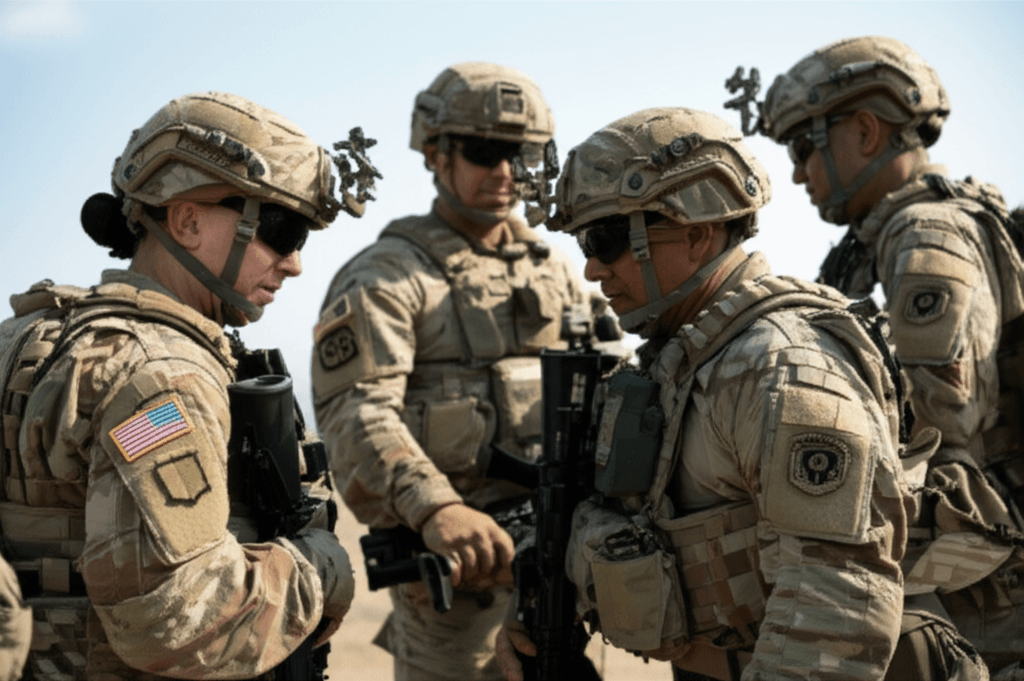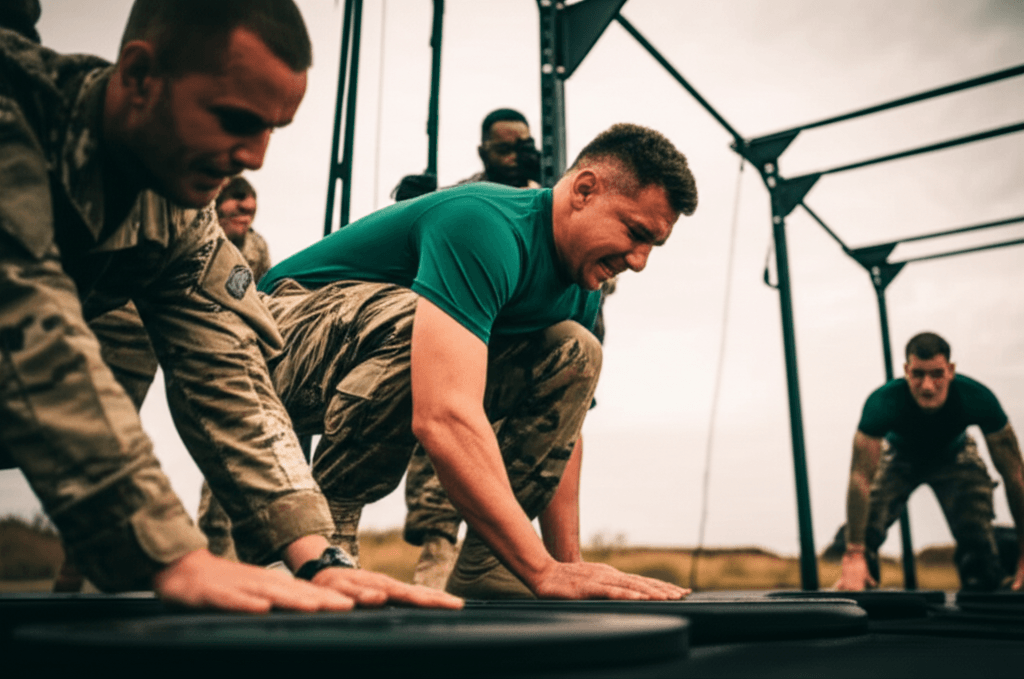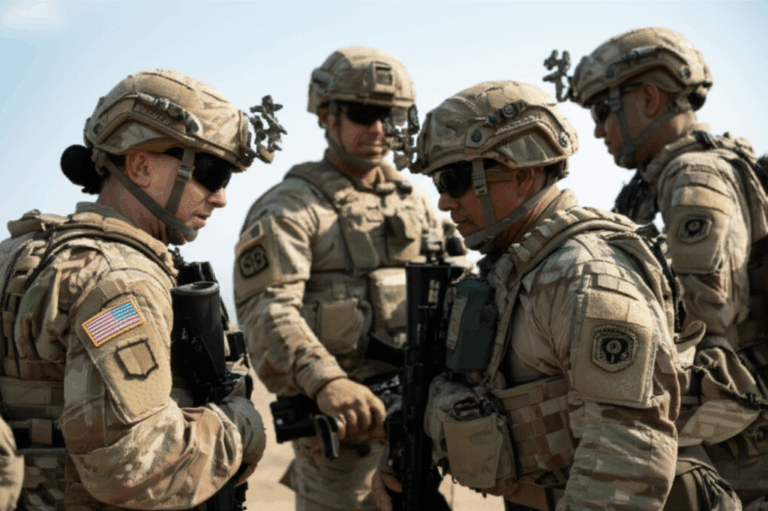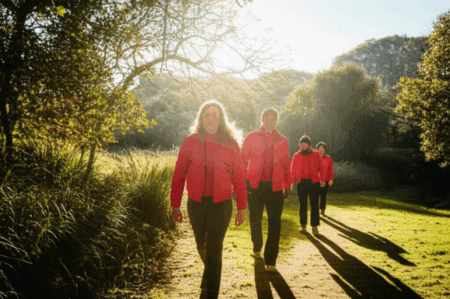The “Warrior Ethos” is more than just a military slogan; it’s a foundational set of principles that shapes the character, resilience, and operational effectiveness of service members. Beyond battlefield courage, it embodies a commitment to mission, relentless determination, and unwavering support for comrades. For the U.S. Air Force’s 331st Recruiting Squadron (RCS), cultivating this ethos is paramount to its critical mission, especially given its expansive geographical footprint. Through its innovative Warrior Fitness Club, the 331st RCS is actively strengthening the physical and mental fortitude of its personnel, ensuring readiness and fostering cohesion across a multi-state area.

Understanding the Warrior Ethos in Modern Military Service
At its core, the Warrior Ethos encapsulates core tenets such as “I will always place the mission first, I will never accept defeat, I will never quit, and I will never leave a fallen comrade.” This isn’t merely a creed for combat roles; it’s a guiding philosophy for all military personnel, instilling a mindset of self-sacrifice, teamwork, integrity, and personal courage. It requires a tough-mindedness, tireless motivation, and an unceasing vigilance, extending to both personal and professional lives. The Air Force, like other branches, has deliberately integrated this ethos into training and development to prepare an expeditionary force capable of diverse missions, from humanitarian aid to counter-terrorism. Embracing this ethos means fostering resilience and a durable mindset to overcome challenges, physical hardships, and even failures.

The 331st Recruiting Squadron: A Geographically Dispersed Mission
The 331st Recruiting Squadron is a vital component of the Air Force’s mission, charged with inspiring, engaging, and recruiting diverse, highly qualified men and women to sustain U.S. airpower capabilities. Headquartered at Maxwell Air Force Base in Montgomery, Alabama, the squadron operates across an expansive territory encompassing Alabama, Florida, Georgia, and other states like Mississippi and Louisiana, with 31 geographically separated units (GSUs). This broad dispersion, while necessary for outreach, presents unique challenges in maintaining unit cohesion, shared culture, and consistent readiness among its approximately 100 active-duty and civilian personnel.

Launching the Warrior Fitness Club: A Strategic Initiative
Recognizing the need to reinforce the Warrior Ethos and enhance unit readiness across its dispersed locations, the 331st RCS launched the Warrior Fitness Club (WFC). This voluntary initiative is designed to bolster both the physical and mental resilience of its members. Lieutenant Colonel Bryan J. Davis, commander of the 331st RCS, highlighted the club’s purpose: “We established the Warrior Fitness Club to restore and reinforce our unit’s warrior ethos.”
Operational Structure and Engagement
The WFC promotes consistent physical activity through a structured approach. Members are required to achieve at least 150 minutes of cardiovascular and strength-based workouts per week. To facilitate participation and accountability, the program provides training gear, often including wearable devices like Garmins, funded through squadron innovation funds, enabling real-time tracking of activities. Inactivity is addressed with a courtesy reminder after 15 days, and after 30 days, members may be removed from the club and asked to return equipment, unless an exception is granted for personal or medical reasons.
The club is designed to be scalable, adaptive, and inclusive, welcoming officers, civilians, and new recruiters alike. Currently, 82 of the squadron’s 102 Airmen have joined, demonstrating significant buy-in.
Fostering Unity Through Competition
Beyond individual fitness, a crucial aspect of the WFC is its ability to foster camaraderie and team cohesion through monthly unit-wide challenges between different flights. These challenges help bridge the geographical gaps, bringing personnel together in a shared pursuit of fitness and esprit de corps. Chief Master Sgt. Trent Branstetter, the 331st RCS senior enlisted leader, exemplifies this dedication, having logged over one million steps—equivalent to 551 miles—during a squadron step challenge in July. His leadership by example underscores the program’s commitment to motivating all members.

Measurable Impacts on Readiness and Well-being
The Warrior Fitness Club has yielded tangible benefits for the 331st RCS, aligning with broader Air Force initiatives to improve force readiness. A survey of current WFC members revealed compelling results: 94% reported feeling more connected to the unit, and an impressive 97% observed improvements in their physical fitness and mental health.
Lt. Col. Davis emphasized the significance of these outcomes: “Those aren’t just statistics, they’re signs of transformation. When our Airmen feel stronger physically and mentally, we see sharper mission focus, healthier team dynamics and deeper engagement.” By investing in the holistic well-being of its personnel, the 331st RCS is ensuring that its recruiters are not only physically capable but also mentally resilient and deeply connected to their mission and their team, regardless of the distance separating them. The WFC stands as a testament to how dedicated fitness programs can directly enhance the “Warrior Ethos” and contribute to the overall readiness of a dispersed military unit.







